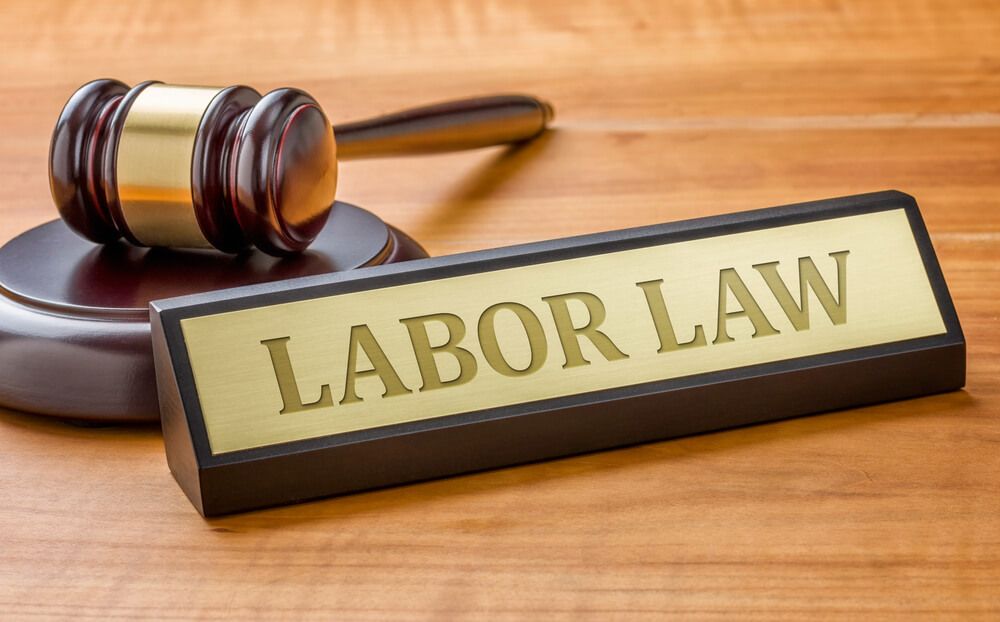Macau Labor Law QA 2
Brief Introduction
The Macau SAR law has a specific set of rules governing the labor relationship between an employer and an employee.
Considering the specificity of the labor market of the Macau SAR and that said specificity tends to raise several questions for the employers and employees, our Firm has decided to prepare a Q&A, that will be divided into several chapters. These chapters will focus on the main questions that we receive almost daily.
In the second chapter, we will address some questions related to the terms and conditions that govern an employment relationship. We will mainly focus on matters related to working hours, overtime work, and the leaves of the employee.
It should be pointed out that this newsletter is not a comprehensive analysis of the Macau SAR law we did not cover.
I
Q: What are the normal working hours under the terms of the Macau SAR law?
A: The normal working hours should not exceed eight hours a day and forty-eight hours per week.
Important to note that the employer must give the employee a break period of not less than 30 consecutive minutes so that the employee does not work more than five hours continuously.
II
Q: Can the employer unilaterally change the working time as stipulated in the employment contract?
A: As a rule, it is important to note that the employer is empowered by the Macau SAR law to set the working hours schedule for his/her/its employees.
Without prejudice upon agreeing with the employee on a specific working hours schedule, any change to this schedule is subject to mutual agreement between the employee and employer.
III
Q: Is it possible for the employer to request the employee to work more than eight hours a day?
A: The employer can request the employee to work more than eight hours a day, provided that the employee agrees. It should be noted that the characteristics of the operation of the company/commercial establishment must also be considered for the limit of eight hours a day of work be exceeded by the employee.
In this scenario, the employer must give ten consecutive hours of rest a day and a total of twelve hours a day of rest per day.
IV
Q: Can the employee be exempt from a fixed work-hour schedule?
A: The employee and the employer may agree to exempt the employee from working under fixed working hours.
Said agreement must be set out in writing.
Moreover, certain employees – due to the nature of the work that they carry out – may be exempt from a fixed work hours schedule (e.g. employees that work in leadership or management positions, or positions of external supervision, work in places outside of the establishment and not subject to immediate control of their superiors, academic or research work not under the supervision of a superior and domestic work).
V
Q: When is overtime work possible?
A: Overtime work is possible under the terms of the Macau law under certain circumstances.
In that sense, the overtime work may be carried out in the following circumstances:
a) by prior determination of the employer, irrespective of the employee’s consent, in the circumstances and within these limits:
• when cases of force majeure occur, provided that the daily working hours of the employee do not exceed sixteen hours;
• when the employer faces great loss, provided that the daily working hours of the employee do not exceed sixteen hours;
• when the employer faces an unpredictable increase in the amount of work, provided that the daily working hours do not exceed sixteen hours.
b) by prior request from the employer, with the employee’s consent;
c) at the initiative of the employee, with prior consent of the employer.
In the above cases, the employee is entitled to a break of no less than thirty consecutive minutes, so that the employee will not work more than five straight hours.
In addition to the rest period referred, the employee will also be entitled to a compensatory rest.
VI
Q: How should the employee be paid for the overtime work carried out?
A: The overtime work should be paid as follows:
a) In cases where the overtime work was performed by prior determination of the employer, irrespective of the employee’s consent, the employee will be entitled to receive the normal remuneration for the work performed plus an increase of 50%;
b) In cases where the overtime work was performed in cases where the employer faces great loss or the employer faces an unpredictable increase in the amount of work, the employee will be entitled to receive the normal remuneration for the work performed plus an increase of 20%.
VII
Q: Can an employer request an employee to work seven days in a row without a rest day?
A: The employee is entitled to a paid rest day (i.e. 24 consecutive hours) per week.
Without prejudice, it is possible that the weekly rest period may not have a weekly frequency if it is agreed upon between the parties or the nature of the company/commercial establishment activity makes it impracticable, in which case the employee shall be entitled to four paid rest days per four weeks.
In this sense, the employer can request an employee to work seven days in a row without a rest day, provided that the referred in the preceding paragraph is respected.
VIII
Q: Can the employer request an employee to work during a rest day?
A: Yes, an employer can request an employee to work during a rest day.
The Macau SAR law allows the employer to request the employee to work during a rest day without the consent of the employee in certain circumstances:
a) when the employer faces a great loss or in cases of force majeure;
b) when the employer faces an unforeseen increased amount of work;
c) when the service rendered is indispensable to ensure the continued operation of the business.
Work carried out by the employee under the circumstances referred to above will grant the employee the right to enjoy a rest day to be determined by the employer within 30 days counted from the day when the employee worked on his/her rest day.
In addition to the right referred in the preceding paragraph, in this event, the employee will still be entitled to:
a) an additional day’s basic remuneration or an additional day of compensatory rest within thirty days, for employees who receive a monthly salary;
b) one day’s basic remuneration in addition to the normal remuneration, or an additional day of compensatory rest within thirty days, for employees who are paid by actual time worked or output.
IX
Q: Can the employee request his/her employer to work during a weekly rest day?
A: Yes, an employee can request his/her employer to work during a weekly rest day.
In this scenario, the employee will be entitled to a compensatory day of rest, to be determined by the employer within 30 days, following the day of the performance of work.
However, if in this case, the employee does not enjoy the compensatory day of rest referred, then he/she will be entitled to:
a) an additional day’s basic remuneration, for employees who receive a monthly salary;
b) one day’s basic remuneration in addition to the normal remuneration, for employees who are paid by actual time worked or output.
X
Q: Is it possible for the employer to request the employee to work during a mandatory holiday?
A: Yes, the employer can request the employee to work during a mandatory holiday.
First of all, it is important to point out that the mandatory holidays are the 1st of January of each year, the Lunar New Year (the first, second, and third day of the first month of the Lunar Year), Cheung Ming Festival, 1st of May of each year, the day after the Mid-Autumn Festival, 1st of October of each year, Chong Yeong Festival and 20th of December of each year.
The following circumstances may allow the employer to request the employee to work during a mandatory holiday:
a) when the employer faces a great loss or in cases of force majeure;
b) when the employer faces an unforeseen increased amount of work;
c) when the service rendered is indispensable to ensure the continued operation of the business.
In the scenarios above, the performance of work entitles the employee to a compensatory rest day, which shall be designated by the employer within 3 months following the performance of the work and may be substituted by agreement with the employer for one day’s basic remuneration as compensation, as well as:
a) an additional day’s basic remuneration or an additional compensatory rest day within 3 months for employees who receive a monthly salary;
b) one day’s basic remuneration in addition to the normal remuneration, or an additional compensatory rest day within 3 months for employees who are paid by actual time worked or output.
XI
Q: How many days of annual leave must the employee enjoy per year?
A: The employee is entitled to a minimum of six working days of paid annual leave during the second year of service if the employment relationship is longer than one year.
XII
Q: Can the employer determine unilaterally the period of annual leave that the employee is entitled to enjoy per year?
A: As a rule, the period of annual leave should be determined by mutual agreement between the employer and the employee.
If there is no agreement between the employer and the employee, then the Macau SAR law allows the employer to determine the annual leave period for the employee to enjoy.
XIII
Q: Can an employee enjoy a maternity leave?
A: An employee may enjoy a maternity leave of 70 days.
Of these 70 days of leave, 63 days must be taken immediately after the confinement and the days left may be taken consecutively or separately, before or after the confinement, at the discretion of the female employee.
Important to point out that if the employee intends to enjoy part of her maternity leave before childbirth, she must notify her employer of this intention at least five days in advance.
This maternity leave should be paid if the employment relationship of this employee has lasted more than one year counting from the day of the childbirth.
In this case, the employee will be entitled to receive the basic remuneration corresponding to the period of maternity leave.
XIV
Q: Can an employee enjoy a paternity leave?
A: An employee may enjoy a paternity leave of 5 working days.
The paternity leave may be taken by the employee consecutively or separately from when the mother of the child is three months pregnant until thirty days after childbirth.
This paternity leave should be paid if the employment relationship of this employee has lasted more than one year counting from the day of the childbirth. In this case, the employee will be entitled to receive the basic remuneration corresponding to the period of paternity leave.

If you have additional questions, you can find out more about our services on our Employment Practices page and in our Macao Labor Law QA 1, or contact one of our dedicated lawyers, Manuela António, Tiago Assunção, and António Zhang.
We shall be pleased to assist you through all the steps and help you achieve your goals.



